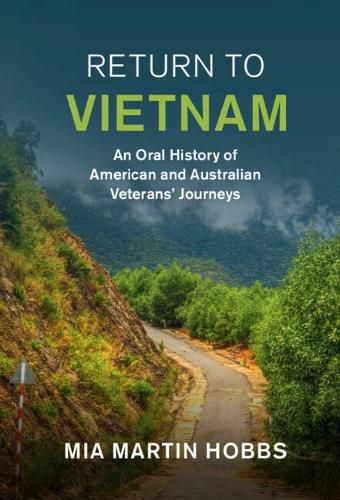Readings Newsletter
Become a Readings Member to make your shopping experience even easier.
Sign in or sign up for free!
You’re not far away from qualifying for FREE standard shipping within Australia
You’ve qualified for FREE standard shipping within Australia
The cart is loading…






Between 1981 and 2016, thousands of American and Australian Vietnam War veterans returned to Viet Nam. This comparative, transnational oral history offers the first historical study of these return journeys. It shows how veterans returned in search of resolution, or peace, manifesting in shifting nostalgic visions of ‘Vietnam.’ Different national war narratives shaped their returns: Australians followed the ‘Anzac’ pilgrimage tradition, whereas for Americans the return was an anti-war act. Veterans met former enemies, visited battlefields, mourned friends, found new relationships, and addressed enduring legacies of war. Many found their memories of war eased by witnessing Viet Nam at peace. Yet this peacetime reality also challenged veterans’ wartime connection to Vietnamese spaces. The place they were nostalgic for was Vietnam, a space in war memory, not Viet Nam, the country. Veterans drew from wartime narratives to negotiate this displacement, performing nostalgic practices to reclaim their sense of belonging.
$9.00 standard shipping within Australia
FREE standard shipping within Australia for orders over $100.00
Express & International shipping calculated at checkout
Between 1981 and 2016, thousands of American and Australian Vietnam War veterans returned to Viet Nam. This comparative, transnational oral history offers the first historical study of these return journeys. It shows how veterans returned in search of resolution, or peace, manifesting in shifting nostalgic visions of ‘Vietnam.’ Different national war narratives shaped their returns: Australians followed the ‘Anzac’ pilgrimage tradition, whereas for Americans the return was an anti-war act. Veterans met former enemies, visited battlefields, mourned friends, found new relationships, and addressed enduring legacies of war. Many found their memories of war eased by witnessing Viet Nam at peace. Yet this peacetime reality also challenged veterans’ wartime connection to Vietnamese spaces. The place they were nostalgic for was Vietnam, a space in war memory, not Viet Nam, the country. Veterans drew from wartime narratives to negotiate this displacement, performing nostalgic practices to reclaim their sense of belonging.